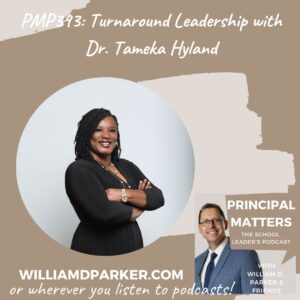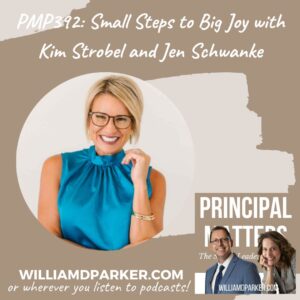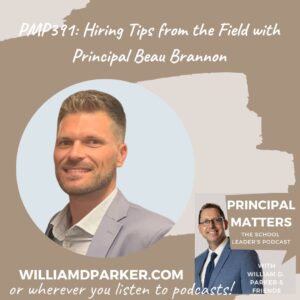Podcast: Play in new window | Download
Educators are talking a lot about students in trauma. Although you may not always know when students are stressed or facing a crises, research by the American Psychological Association, shows that today’s students have the same level of anxiety as psychiatric patients did in the 1950’s.

Some of this anxiety is the result of increased expectations placed on students. Sometimes it is their unstable environmental conditions. At other times, it may result from unfiltered content they view via social media.
As a result, today’s students need schools that provide places of stability and belonging. A first response to the growing number of students with anxiety is awareness. When you have a mindset of anticipating students face emotional stress, you can commit to building relationships of trust so that they feel safe in school. A second response is just as important: practicing social-emotional learning strategies that work well for all students.
Interview with Tamara Fyke

Tamara Fyke is an expert in social-emotional learning. She is an educator and creative entrepreneur with a passion for kids, families, and urban communities. As the creator, author, and brand manager for Love In A Big World, she equips educators with a social-emotional learning (SEL) curriculum that is both research-based and practical. She also provides the supporting resources necessary to empower students to be socially competent, emotionally healthy problem-solvers who discover and maintain a sense of purpose and make a positive difference in the world.
Tamara is also the editor of Building People: Social & Emotional Learning for Kids, Schools & Communities, a book that brings 12 wide-ranging perspectives on SEL to educators, parents, and leaders.
In our conversation, Tamara shares some great takeaways for educators wanting to reach students and move them from risk to resiliency. Here are a few golden nuggets from our talk:
Three Essential Needs
1. Students need caring and nurturing environments.
When adults understand and relate to students, students find a place to belong. Principals should encourage environments with entrances and surroundings that are welcoming and inviting. Teachers and staff are dedicated to showing up with smiles on their faces, and students know teachers enjoy being with them.
2. Students need high expectations.
First, teachers must share a common language that points to good behavior expectations like kindness, honesty, and courtesy. Students need examples of what that behavior looks like inside and outside of class. In addition, students must understand the expectations to learn, to succeed, and to work hard academically.
3. Students need meaningful engagement.
This happens in places that encourage methods like flipped model classrooms, hands-on lessons, and active participation from students for real-life learning.
Resiliency, Prevention & Intervention
These methods become practice that leads toward resiliency. As Tamara explains, prevention is different from intervention. Intervention is important when we see students who are triggered. Just as importantly, we can put measures in place to reduce those triggers: the key is building healthy relationships with students. Tamara’s research and practice confirm that one caring adult in the life of a student can make all the difference. Especially in middle school, students need to be “anchored” through advisory periods, homerooms, or teachers whom they trust.
Finally, Tamara shares about the observations she has made of principals and teachers from across the nation who are responding to students in trauma. Specifically, she has observed when school leaders are committed to the social emotional learning of students, entire schools flourish.
I encourage you to listen in to the attached podcast for the whole conversation. And you can find out more about Tamara and her resources at Loveinabigworld.org.
Now It’s Your Turn
What ways is your school committed to the social emotional learning of students? Just as you support the of increased academic standard, how are you also supporting the cultural and emotional supports of students?
Sign-Up For Free Updates and Ebook
When you enter your email address below, you will automatically receive my newest posts and a free Ebook, 8 Hats: Essential Roles for School Leaders. Let’s keep learning together!
Subscribe for free weekly updates and receive free e-book!
(function($) {window.fnames = new Array(); window.ftypes = new Array();fnames[0]=’EMAIL’;ftypes[0]=’email’;fnames[1]=’FNAME’;ftypes[1]=’text’;fnames[2]=’LNAME’;ftypes[2]=’text’;}(jQuery));var $mcj = jQuery.noConflict(true);
Principal Matters–The Book!

School leaders are very busy, so each of the twenty-four chapters is designed as a quick-read and followed with take-action questions for follow-up or reflection. If you want practical ideas on understanding your purpose, managing school teams, dealing with challenges, and leading with courage, action, motivation, and teamwork, go HERE to pick up a copy for you or your team.
Messaging Matters

Harness the power of messaging to create a culture of acknowledgment, respect, and celebration. Written specially for leaders, this title is divided into three parts, helping readers to maximize their role as chief communicators with students, teachers, and parents and community. Each chapter includes suggestions for using digital tools to enhance messaging and ends with reflection questions and practical next steps.


